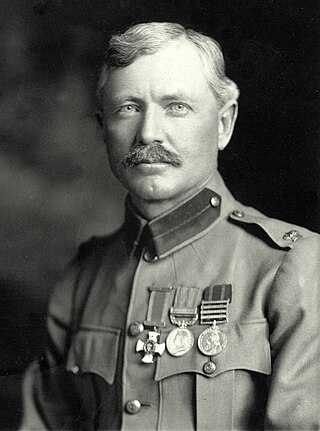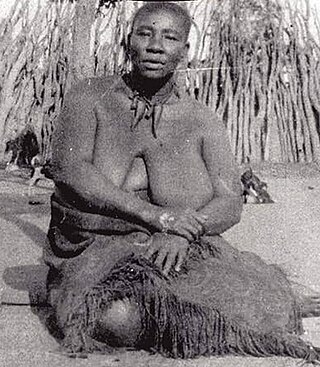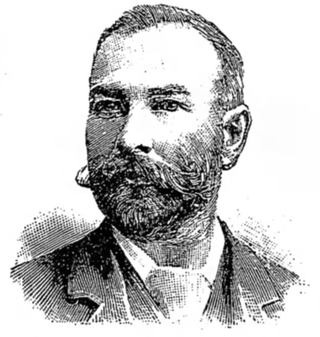Related Research Articles

Bulawayo is the second largest city in Zimbabwe, and the largest city in the country's Matabeleland region. The city's population is disputed; the 2022 census listed it at 665,940, while the Bulawayo City Council claimed it to be about 1.2 million. Bulawayo covers an area of 546 square kilometres in the western part of the country, along the Matsheumhlope River. Along with the capital Harare, Bulawayo is one of two cities in Zimbabwe that are also provinces.
Chimurenga is a word in the Shona. The Ndebele equivalent is not as widely used since most Zimbabweans speak Shona; it is Umvukela, meaning "revolutionary struggle" or uprising. In specific historical terms, it also refers to the Ndebele and the Shona insurrections against administration of the British South Africa Company during the late 1890s, the First Chimurenga—and the war fought between African nationalist guerrillas and the predominantly-white Rhodesian government during the 1960s and the 1970s, the Rhodesian Bush War, or the Second Chimurenga/Imvukela.

Lobengula Khumalo was the second and last official king of the Northern Ndebele people. Both names in the Ndebele language mean "the men of the long shields", a reference to the Ndebele warriors' use of the Nguni shield.

Andries Hendrik Potgieter, known as Hendrik Potgieter was a Voortrekker leader and the last known Champion of the Potgieter family. He served as the first head of state of Potchefstroom from 1840 and 1845 and also as the first head of state of Zoutpansberg from 1845 to 1852.

Matabeleland is a region located in southwestern Zimbabwe that is divided into three provinces: Matabeleland North, Bulawayo, and Matabeleland South. These provinces are in the west and south-west of Zimbabwe, between the Limpopo and Zambezi rivers and are further separated from Midlands by the Shangani River in central Zimbabwe. The region is named after its inhabitants, the Ndebele people who were called "Amatabele"(people with long spears – Mzilikazi 's group of people who were escaping the Mfecani wars). Other ethnic groups who inhabit parts of Matabeleland include the Tonga, Bakalanga, Venda, Nambya, Khoisan, Xhosa, Sotho, Tswana, and Tsonga.

The Pioneer Column was a force raised by Cecil Rhodes and his British South Africa Company in 1890 and used in his efforts to annex the territory of Mashonaland, later part of Zimbabwe.
The Northern Ndebele people are a Nguni ethnic group native to Southern Africa. Significant populations of native speakers of the Northern Ndebele language (siNdebele) are found in Zimbabwe. Another Northern Ndebele group is found in the Limpopo province of South Africa, unrelated to those in Zimbabwe but instead related to the Southern Ndebele people as descendants of the same ancestral kings, Musi kaMhlanga and Ndebele KaMabhudu. The Northern Ndebele people of South Africa are concentrated in the towns of Polokwane, Zebediela, Mokopane, and Hamanskraal.

Frederick Russell Burnham DSO was an American scout and world-traveling adventurer. He is known for his service to the British South Africa Company and to the British Army in colonial Africa, and for teaching woodcraft to Robert Baden-Powell in Rhodesia. Burnham helped inspire the founding of the international Scouting Movement.

The First Matabele War was fought between 1893 and 1894 in modern-day Zimbabwe. It pitted the British South Africa Company against the Ndebele (Matabele) Kingdom. Lobengula, king of the Ndebele, had tried to avoid outright war with the company's pioneers because he and his advisors were mindful of the destructive power of European-produced weapons on traditional Matabele impis attacking in massed ranks. Lobengula reportedly could muster 80,000 spearmen and 20,000 riflemen, armed with Martini-Henry rifles, which were modern arms at that time. However, poor training may have resulted in the weapons not being used effectively.

The Second Matabele War, also known as the First Chimurenga, was fought in 1896 and '97 in the region later known as Southern Rhodesia, now modern-day Zimbabwe. It pitted the British South Africa Company against the Matabele people, which led to conflict with the Shona people in the rest of Southern Rhodesia.

The military history of Zimbabwe chronicles a vast time period and complex events from the dawn of history until the present time. It covers invasions of native peoples of Africa, encroachment by Europeans, and civil conflict.
Major Patrick William Forbes was a British South Africa Police officer who commanded a British South Africa Company force which invaded Matabeland during the First Matabele War.
iNduna is a Zulu/Xhosa title meaning advisor, great leader, ambassador, headman or commander of a group of warriors. It can also mean spokesperson or mediator, as the iziNduna often acted as a bridge between the people and the king. The title was reserved for senior officials appointed by the king or chief and was awarded to individuals held in high esteem for their qualities of leadership, bravery or service to the community. The iziNduna would regularly gather for an indaba to discuss important issues.
Europeans first came to the region in southern Africa today called Zimbabwe in the sixteenth century, when Portuguese colonials ventured inland from Mozambique and attacked the Kingdom of Mutapa, which then controlled an area roughly equivalent to eastern Zimbabwe and western Mozambique. Portuguese influence over Mutapa endured for about two centuries before fading away during the 1690s and early-1700s (decade). During the year of 1685, French Huguenots emigrated to present-day South Africa and whilst some settled there, others moved further north into the continent. Those who did, settled within modern-day Zimbabwe, Mozambique and Botswana, and co-existed with the indigenous people; most of whom, in Zimbabwe, were the Naletale people.

The Shangani Patrol was a 34-soldier unit of the British South Africa Company that in 1893 was ambushed and annihilated by more than 3,000 Matabele warriors in pre-Southern Rhodesia, during the First Matabele War. Headed by Major Allan Wilson, the patrol was attacked just north of the Shangani River in Matabeleland, Rhodesia. Its dramatic last stand, sometimes called "Wilson's Last Stand", achieved a prominent place in the British public imagination and, subsequently, in Rhodesian history, similarly to events such as the Battle of the Little Bighorn and the Battle of the Alamo in the United States.

Mthwakazi is the traditional name of the proto-Ndebele people and Ndebele kingdom and is in the area of today's Zimbabwe. Mthwakazi is widely used to refer to inhabitants of Matebeleland Province in Zimbabwe.

The British South Africa Company's administration of what became Rhodesia was chartered in 1889 by Queen Victoria of the United Kingdom, and began with the Pioneer Column's march north-east to Mashonaland in 1890. Empowered by its charter to acquire, govern and develop the area north of the Transvaal in southern Africa, the Company, headed by Cecil Rhodes, raised its own armed forces and carved out a huge bloc of territory through treaties, concessions and occasional military action, most prominently overcoming the Matabele army in the First and Second Matabele Wars of the 1890s. By the turn of the century, Rhodes's Company held a vast, land-locked country, bisected by the Zambezi river. It officially named this land Rhodesia in 1895, and ran it until the early 1920s.
BAPO 2 is an ethnic village in the North West province of South Africa.

Lozikeyi Dlodlo was a queen regent of the Ndebele people in Southern Africa.

Johan Wilhelm Colenbrander CB was a Natal-born soldier and colonial official in Southern Africa. Colenbrander served with the Natal Mounted Police and the Stanger Mounted Rifles, seeing action in the 1879 Anglo-Zulu War. During the war Colenbrander negotiated the surrender of Zulu Inkosi (chief) Zibhebhu kaMaphitha and afterwards worked for him as a secretary and gunrunner. He fought for Zibhebhu during the 1883–1884 Third Zulu Civil War but lost all his trade goods and cattle when Zibhebhu was defeated.
References
- 1 2 "How the Mzizis became Mguni: The story of Mphubane Mzizi and denied paternity". The Sunday News. Retrieved 2021-04-06.
- 1 2 Clarke, Marieke Faber; Nyathi, Pathisa (2010). Lozikeyi Dlodlo: Queen of the Ndebele : "a Very Dangerous and Intriguing Woman". African Books Collective. ISBN 978-0-7974-4266-5.
- ↑ "The Fight at Mguni's Stronghold: 2nd Matabele War, Rhodesia, 1896". Britain's Small Forgotten Wars. Retrieved 2021-04-06.